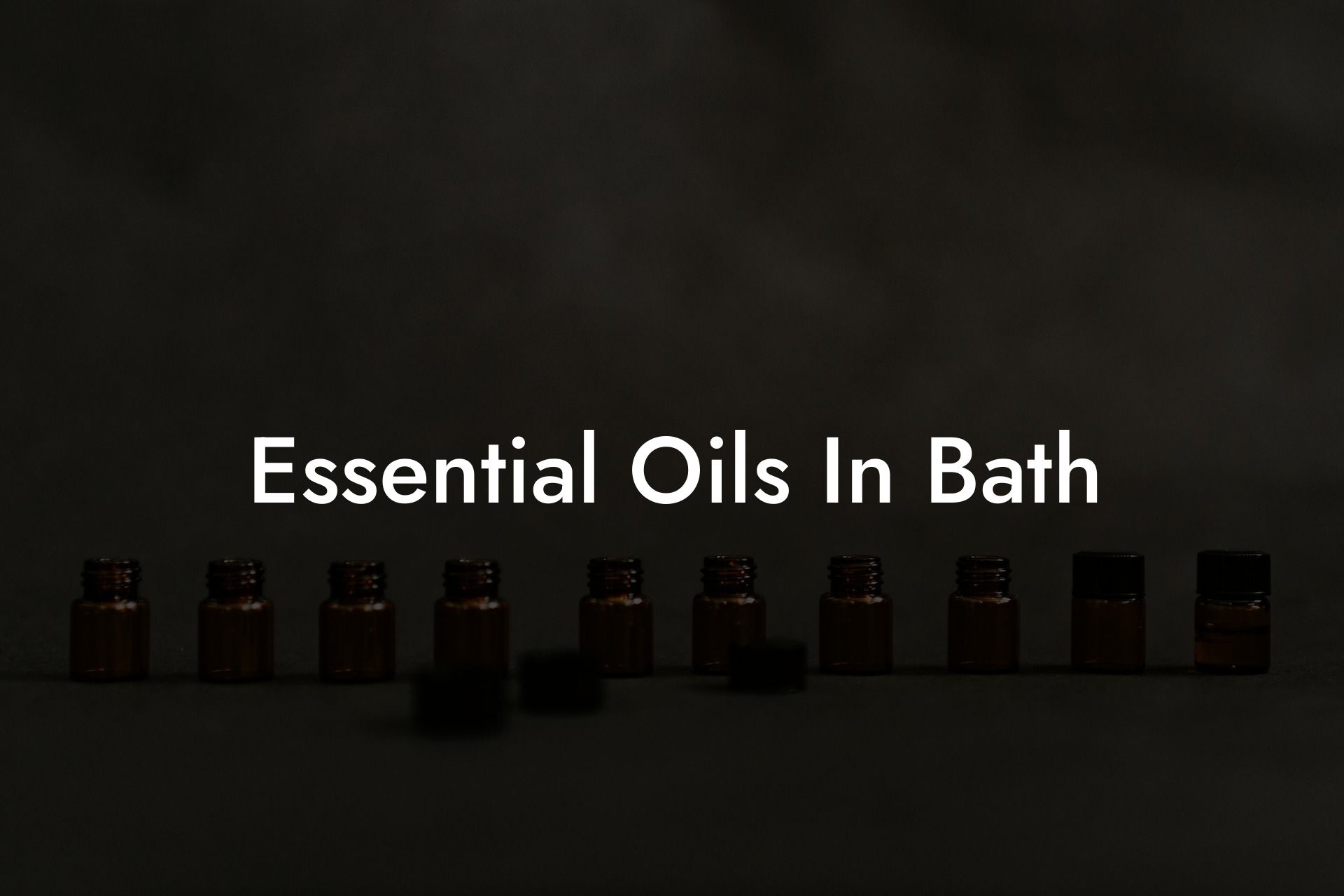Imagine sinking into a warm, soothing bath at the end of a long day, enveloped by the pleasant aroma of your favorite essential oils. Not only does it feel incredibly relaxing, but it also provides numerous therapeutic benefits for the mind and body. In this article, we’ll explore the wonderful world of essential oils in baths and discuss how to choose the right oils, the benefits of incorporating them in your routine, and how to safely use them for a remarkably calming experience.
Table of Contents
Choosing the Right Essential Oils
With so many essential oils available, it’s important to choose those that will enhance your bath experience and provide the desired benefits. Some popular essential oils for baths include:
- Lavender: Aids in relaxation and promotes restful sleep.
- Eucalyptus: Helps to clear the mind and relieve congestion.
- Chamomile: Soothes irritated skin and calms the mind.
- Rose: Enhances emotional wellbeing and promotes feelings of self-love.
- Frankincense: Reduces stress and supports healthy immune function.
Remember to choose high-quality, pure essential oils from a trusted source like Oshu Oils to ensure safety and effectiveness.
Benefits of Essential Oils in Baths
Adding essential oils to your bath can elevate your relaxation session to new heights. Some key benefits include:
- Stress Relief: The aromatic compounds in essential oils can help to calm the mind and reduce feelings of stress and anxiety.
- Muscle Relief: A warm bath combined with essential oils like lavender or eucalyptus can ease sore muscles and promote relaxation.
- Skin Care: Essential oils like chamomile and rose can provide nourishing and soothing benefits for the skin, making your bath both a relaxation and beauty ritual.
- Improved Sleep: Taking a bath with calming essential oils like lavender or chamomile can prepare your body and mind for a restful night’s sleep.
How to Use Essential Oils in Baths Safely
Before incorporating essential oils into your bath routine, it’s crucial to follow safety guidelines:
- Always dilute essential oils in a carrier oil such as coconut oil, jojoba oil, or sweet almond oil. This prevents skin irritation that can occur when undiluted essential oils come into contact with the skin.
- Start with a low concentration of essential oils in the carrier oil (1-2% dilution) and gradually increase if desired.
- Perform a patch test by applying a small amount of the diluted essential oil on your skin and waiting for 24 hours to check for any adverse reactions.
- Consult with a healthcare professional before using essential oils during pregnancy, breastfeeding, or if you have any medical concerns.
Essential Oils In Bath Example:
Here’s a simple and relaxing essential oil bath recipe that you can try:
- Fill your bathtub with warm water.
- In a small bowl, mix 5 drops of lavender essential oil with 1 tablespoon of carrier oil (such as coconut oil).
- Pour the oil mixture into the running water, stirring to disperse evenly.
- Soak in the bath for 20-30 minutes, taking slow, deep breaths to fully enjoy the soothing aroma and benefits of the lavender essential oil.
- After the bath, gently pat your skin dry and apply a nourishing body lotion or oil to lock in moisture.
Now that you have a better understanding of incorporating essential oils into your bath time routine, it’s time to take the plunge and indulge yourself in this soothing and restorative experience. We encourage you to explore other articles on the Oshu Oils blog for more enlightening guides on essential oils and aromacology. And don’t forget to browse through our exquisite range of Oshu Oils essential oils to suit your every need. Sharing is caring, so if you enjoyed this article, spread the love by sharing it with friends and family.





















